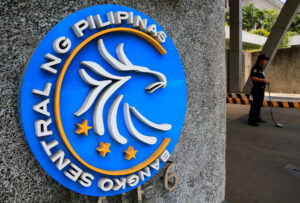MANILA — The Philippines has yet to exit the so-called “gray list” of Paris-based watchdog Financial Action Task Force (FATF), which urged the country to “swiftly” tackle remaining deficiencies in its defenses against money laundering and terrorist financing.
This means the Philippines is still under “increased monitoring,” particularly its progress in resolving deficiencies within agreed time frames, FATF said in a statement on Friday. Being on the list can restrict cross-border transactions and create reputational risk.
The country has been on this list since June 2021. What the Philippines is trying to avoid is a return to the “black list,” which can result in tighter regulations and more expensive remittances, a lifeline for many Filipinos.
The decision—an outcome of FATF’s plenary meeting this month—marked a stumbling block to President Marcos’ bid to exit the gray list by October 2024. The FATF plenary meets three times a year, usually in February, June, and October.
READ: Concerned gov’t agencies ordered to get PH out of FATF grey list
“Three out of 18 action items remain outstanding. Put another way, it means that the Philippines has actually taken action,” FATF president Raja Kumar told a press conference.
Fight against money laundering, terrorist financing
But the Philippines has yet to demonstrate the use of credible controls against money laundering and terrorist financing risks from casino junkets, the watchdog noted.
It was also urged to intensify cross-border measures at all main seaports and airports, including detection of false declarations of currency and confiscation action. Finally, FATF wants to see an increase in the prosecution of cases related to terrorist financing.
But the FATF nevertheless hailed “significant steps” taken, including an increase in investigations and prosecutions of those involved in money laundering.
The country was also credited for improving access of law enforcement agencies to beneficial ownership data that can be used against individuals hiding their illicit activities and dirty money behind complicated corporate structures.
The FATF also noted the “risk-based” supervision of susceptible entities such as casinos, lawyers, accountants, and real estate agents.
Meanwhile, Jamaica and Turkiye managed to exit the gray list. —Ian Nicolas P. Cigaral


